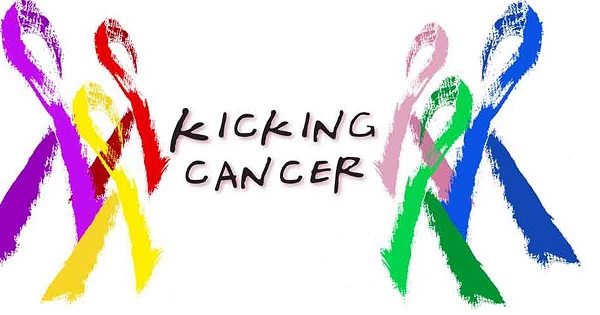Get away from Cancer with a healthy lifestyle
Cancer is a group of diseases involving abnormal cell growth with the potential to invade or spread to other parts of the body. These contrast with benign tumors, which do not spread to other parts of the body.
In Australia, for every 20 people that have cancer has something to do with the fact that they are obese. They might have a good health system and cancer survival rates are improving, but treatment is not sure.

If only we adopted a healthy lifestyle then we would have less chances of acquiring the disease.
One-third of cancers can be prevented by adopting healthy behaviors, from eating better and exercising more to staying away from cigarettes and cutting back on alcohol, says Cancer Australia chief Helen Zorbas.
Since cancer is one of the leading causes of death worldwide, Cancer Australia keeps track of the links between lifestyle and the incidence and outcomes of certain cancers. Prevention is always better than cure.
“In Australia, the proportion of adults who smoke daily has decreased from 22 per cent in 2001 to under 15 per cent in 2014-15, which is lower than comparable countries such as Canada, New Zealand and the UK,” Zorbas says.
“Smoking still directly contributes to more than 13 per cent of cancers in Australia, including cervical, bowel, stomach, pancreas and lung cancers, and causes almost a quarter of cancer deaths. While quitting smoking can be a challenge for people, it is vital in reducing cancer risk.
“Australians’ overall alcohol consumption has fallen markedly since it peaked in the early 1970s, but it is still high when compared to other OECD countries. In 2013, alcohol contributed to almost 3500 cancers in Australia, including breast, esophageal and liver cancers.”
Early detection is vital in fighting the disease. This is why governments are offering some government-run programs to deal with the situation.
According to the latest figures, only 36 per cent of the people invited to take part in the National Bowel Cancer Screening Program participated, while the percentage of women in the target age group who made use of the National Cervical Screening Program was 58.2 per cent and BreastScreen Australia reached only 54.4 per cent of its target age group.
A study by Western Sydney University and the University of Sydney, reported this week, shows immigrant women in particular are failing to respond to public health campaigns urging women to be “breast aware”.
“The message is for women to be familiar with the normal appearance and feel of their breasts so that they are able to detect any changes,” says Cannas Kwok from WSU.
“For migrant women, the breast aware message is culturally sensitive. In the African, Arab, Korean, Indian and Chinese communities surveyed, the subject of looking after their breasts is not a common topic — it is not appropriate to openly discuss one’s breasts, and women may not feel comfortable touching their own breasts.”
This is the reason why actress Angelina Jolie have prompted to the removal of her breast to stop the cancer cells from spreading. She fear that she might die from the same disease that have troubled her mother during her last years.
“Family members found to carry the mutation could be at significant risk for breast or ovarian cancer, and should be offered management options such as risk-reducing strategies and surveillance. However, if the gene mutation is not detected in the family member, they can usually be reassured and avoid unnecessary surveillance and intervention,” Zorbas says.
Here are some tips that might help you to from incurring cancer:
- Stay away from tobacco products
- Have a healthy diet
- Have an exercise routine
- Protect yourself from the sun
Sources: Mayoclinic, The Australian, Wikipedia
